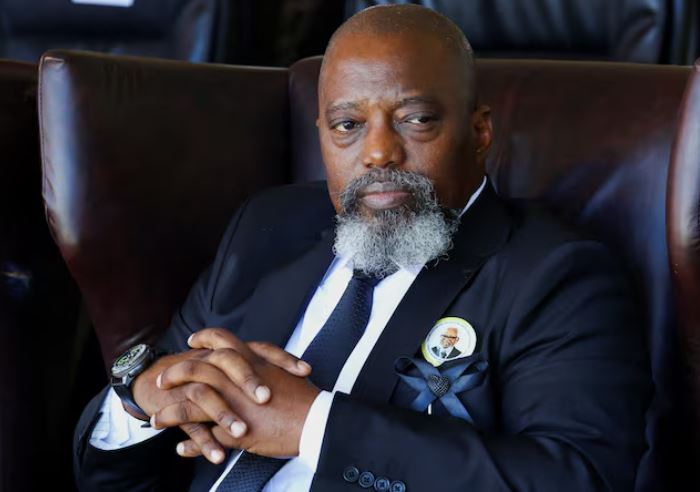Former Congolese President Joseph Kabila has made a rare public appearance in Goma, the capital of North Kivu province. While some unverified reports suggest he may have also been seen in Kigali, Rwanda, these claims have not been confirmed, and it remains unclear whether he crossed the border.
Kabila, who has lived in south Africa since 2024, announced his intention to return to the Democratic Republic of Congo in a statement dated April 8, which was shared with multiple media outlets. The former head of state (2001–2019) cited the “deteriorating security situation” and the “decay of state institutions” as the primary reasons for his return.
“I resolved to return, without delay, to the country,” Kabila stated. “I chose to begin my return in the east of the territory, because there is danger in the house.”
His arrival comes at a time of heightened military conflict in the region, as Congolese armed forces (FARDC) continue to battle the rebel coalition Alliance Fleuve Congo (AFC/M23), led by Corneille Nangaa.
Just last month, during a public event in Johannesburg, South Africa, Kabila firmly rejected accusations of ties to the M23 rebellion, calling them “unfounded.” In a conversation with former South African President Thabo Mbeki, he advocated for an “endogenous approach” to resolving the Congolese crisis, favoring internal solutions over foreign-led interventions.
Kabila’s reappearance also coincides with the revival of his political party, the People’s Party for Reconstruction and Democracy (PPRD), which recently marked its 23rd anniversary. The party is seeking to reestablish its influence, six years after suffering defeat in the 2018 presidential elections.
Meanwhile, political tensions continue to mount. In Kikwit, former Defense Minister and Deputy Prime Minister Jean-Pierre Bemba has accused Kabila of being involved in armed violence, pledging to release “evidence” supporting his claims.
As uncertainty grips eastern Congo, Kabila’s return is expected to spark renewed political debate and could further influence the complex power dynamics shaping the country’s ongoing security crisis.



